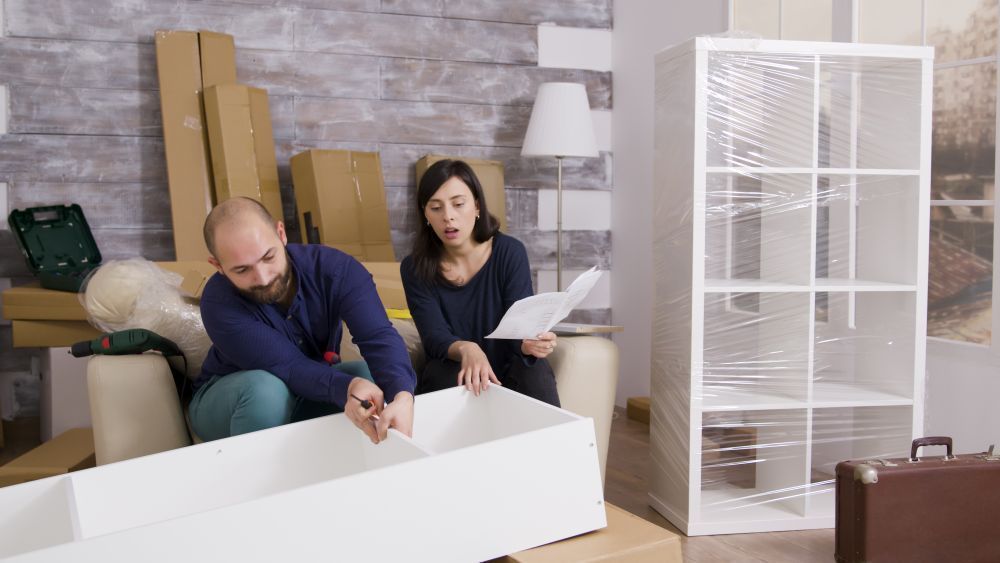Moving Out of State Checklist - Your Complete Guide
Moving out of state takes time and careful planning to get it right. According to the U.S. Census Bureau , over 8 million Americans make interstate moves each year. The average cost ranges from $2,000 to $9,500, depending on your home size and distance. This checklist will walk you through each step to make your move smooth and stress-free.
This guide covers everything from planning 8 weeks ahead to settling into your new home. We'll help you stay organized and avoid common mistakes that can cost time and money.
How to Plan Your Out of State Move
Start Planning 8 Weeks Early
The key to a successful move is starting early. Most experts recommend beginning your planning 8-10 weeks before your move date. This gives you enough time to handle all the details without feeling rushed.
Here's what to focus on first:
Research Your New Area
- Look up neighborhoods and schools if you have kids
- Check local amenities like grocery stores and hospitals
- Learn about the job market in your field
- Research the cost of living differences
Set Your Moving Budget Create a realistic budget that includes all moving costs. Most people spend around $4,300 on average for an interstate move. Your budget should cover:
- Moving company fees
- Packing supplies
- Travel costs
- Storage if needed
- First month's expenses in your new state
Choose Your Moving Date Pick a specific date and mark it on your calendar. Moving during fall or winter costs less than summer moves. Weekday moves are also cheaper than weekend moves.
Create Your Moving Binder
Organization is everything when moving out of state. Set up a moving binder or digital folder to keep track of:
- Moving quotes and contracts
- Receipts for tax purposes
- Important documents
- Address change lists
- Moving day timeline
Finding the Right Moving Company
Get Multiple Quotes
Shop around and get quotes from at least three moving companies. This helps you find the best price and service for your needs. Make sure each company gives you quotes for the same services.
What to Look For:
- Proper licensing for interstate moves
- Good online reviews
- Clear, upfront pricing
- Experience with long-distance moves
- Check their USDOT number with the Federal Motor Carrier Safety Administration (FMCSA)
Book Your Movers Early
Book your moving company 6-8 weeks in advance, especially during peak season. This prevents higher costs and gives you more scheduling options.
For long-distance moving needs, professional movers handle the heavy lifting and transportation safely.
Your 8-Week Moving Timeline
8 Weeks Before Moving
Big Picture Planning
- Set your moving date
- Create your budget
- Start researching moving companies
- Begin looking for housing in your new state
- Research schools if you have children
Start Decluttering Begin sorting through your belongings at least two months before your move. This prevents a last-minute rush and reduces moving costs.
Divide your items into four groups:
- Keep and move
- Sell or donate
- Store temporarily
- Throw away
6 Weeks Before Moving
Book Your Services
- Hire your moving company
- Reserve moving truck if doing it yourself
- Book travel arrangements
- Schedule time off work
Gather Moving Supplies You'll need boxes, tape, markers, bubble wrap, and moving blankets. Don't wait until the last minute to get supplies.
Start Packing Non-Essentials Pack items you won't need in the next month:
- Seasonal clothes
- Books and decorations
- Rarely used kitchen items
- Holiday decorations
4 Weeks Before Moving
Handle the Paperwork
- Research your new state's requirements for driver's license and vehicle registration
- Contact your current doctor and dentist for medical records
- Get copies of your children's school records
- Gather important documents like birth certificates and passports
Arrange Utility Transfers Set up utilities at your new home and schedule disconnection at your current home. This includes:
- Electricity and gas
- Water and sewer
- Internet and cable
- Trash pickup
2 Weeks Before Moving
Change Your Address File a change of address form with the USPS. This only costs $1 and can be done online through the official USPS website . Update your address with:
- Banks and credit card companies
- Insurance providers
- Subscription services
- Employer's HR department
- Government agencies (IRS, Social Security, etc.)
Confirm Details
- Double-check your moving company schedule
- Confirm utility connection dates
- Arrange childcare or pet care for moving day
- Clean out your refrigerator and pantry
1 Week Before Moving
Final Preparations
- Pack a "first day" box with essentials
- Confirm arrival times with your movers
- Pack a cleaning supply kit
- Withdraw cash for tips and unexpected expenses
- Do a final deep clean of your current home
Last-Minute Packing Pack everything except daily essentials. Label boxes clearly with contents and destination room.
Moving Day Essentials
What to Have Ready
Important Documents Keep these with you, not in the moving truck:
- Driver's license and passport
- Insurance papers
- Medical records
- Moving contracts
- Financial documents
Survival Kit Pack a box or suitcase with items you'll need right away:
- Change of clothes for 2-3 days
- Toiletries and medications
- Phone chargers
- Basic tools
- Cleaning supplies
- Snacks and water
Working with Your Moving Team
Before They Arrive
- Clear pathways for movers
- Pack a cooler with drinks and snacks for the crew
- Take photos of valuable items
- Do a final walkthrough
During the Move
- Stay present to supervise packing and loading
- Check your inventory list
- Keep receipts and documents organized
- Take photos of any damage
Tipping Your Movers Tip movers $5-10 per hour or $40-80 per person per day. Have cash ready for the crew.
Understanding Moving Costs
What Affects Your Moving Price
Distance and Weight Moving costs average $6-16 per mile. The weight of your belongings also impacts the final price.
Home Size Costs range from $700 for a small apartment to over $10,000 for large homes. More rooms mean more time and materials needed.
Time of Year Summer moves cost more due to high demand. Moving between October and April saves money.
Additional Services Extra services increase costs:
- Professional packing: $1,000+ average
- Piano moving: $450-2,300
- Car shipping: $900-1,800
Ways to Save Money
Smart Scheduling
- Move during off-peak times
- Choose weekday moves over weekends
- Avoid summer months if possible
DIY Some Tasks
- Pack your own boxes
- Disassemble furniture yourself
- Clean before the movers arrive
Reduce Your Load The less you move, the less you pay. Sell or donate items you don't need.
Legal Requirements for Your New State
Update Your Legal Documents
Most states require you to update your driver's license within 30 days of moving. The American Automobile Association (AAA) provides detailed state-by-state requirements. Check your new state's specific requirements for:
Driver's License and Vehicle Registration
- Get a new driver's license
- Register your vehicle
- Update your car insurance
- Get new license plates
Voter Registration Register to vote in your new state. This is usually required within 30 days of moving.
Professional Licenses Transfer any professional licenses you hold, such as medical, legal, or teaching licenses.
Tax Considerations
Establish Residency Establishing legal residency helps you avoid paying taxes in multiple states. This process varies by state, so research the requirements early.
Moving Expense Deductions Most moving expenses aren't tax deductible unless you're military, according to the Internal Revenue Service (IRS) . Keep receipts anyway in case rules change.
Settling Into Your New State
First Week Priorities
Get Oriented
- Locate the nearest grocery store, pharmacy, and hospital
- Find your local post office and bank
- Explore your new neighborhood
- Register your children for school
Update Your Information
- Get a new library card
- Register with local healthcare providers
- Update your voter registration
- Find new service providers (dentist, mechanic, etc.)
Making Your New House a Home
Unpack Strategically Start with essentials first:
- Bathroom items
- Kitchen basics
- Bedroom necessities
- Important documents
Connect with Your Community
- Introduce yourself to neighbors
- Join local groups or clubs
- Find activities for your children
- Explore local attractions
For specialized moving needs like senior moving services or apartment moves , professional help makes the transition easier.
Special Considerations
Moving with Pets
Health Requirements Make sure pets are up-to-date on vaccinations and get health certificates for interstate travel. Some states have specific requirements for bringing pets across state lines.
Travel Comfort
- Pack a travel kit with food, water, and comfort items
- Plan rest stops for longer trips
- Research pet-friendly hotels if you're driving
Moving with Children
School Transfers Request school records early and register at the new school as soon as possible. This helps avoid delays in your child's education.
Emotional Support Moving can be hard on kids. Help them by:
- Involving them in the planning process
- Keeping familiar items easily accessible
- Planning fun activities in the new area
- Staying positive about the move
Storage Solutions
Sometimes you can't move everything at once. Consider storage options if you can't transport all belongings immediately.
Our storage solutions help bridge the gap between your old and new home.
Common Moving Mistakes to Avoid
Planning Mistakes
Starting Too Late Don't wait until the last minute to start planning. This leads to higher costs and more stress.
Not Getting Enough Quotes Always get at least three quotes from different moving companies. Prices can vary significantly.
Forgetting Hidden Costs Budget for unexpected expenses like:
- Storage fees
- Cleaning supplies
- Food during travel
- Hotel stays
- Utility deposits
Packing Mistakes
Poor Labeling Label boxes clearly with contents and destination room. This saves time when unpacking.
Packing Hazardous Items Don't pack perishable goods, important papers, used toiletries, expired medications, or old cleaning supplies.
Not Protecting Valuables Pack fragile items carefully with proper padding. Consider carrying extremely valuable items yourself.
Documentation Mistakes
Not Keeping Records Save all moving-related receipts and documents. You might need them for insurance claims or tax purposes.
Forgetting to Update Addresses Start updating your address early with all important services and companies.
Moving Day Checklist
Before the Movers Arrive
- [ ] Pack a survival kit with essentials
- [ ] Charge all electronic devices
- [ ] Prepare cash for tips
- [ ] Clear pathways for movers
- [ ] Take inventory of valuable items
- [ ] Have cleaning supplies ready
During the Move
- [ ] Stay present to supervise
- [ ] Check items off your inventory list
- [ ] Keep important documents with you
- [ ] Take photos of any damage
- [ ] Save all receipts
- [ ] Stay hydrated and take breaks
After Loading
- [ ] Do a final walkthrough
- [ ] Check all rooms, closets, and storage areas
- [ ] Turn in keys to landlord or real estate agent
- [ ] Head to your new home
- [ ] Confirm arrival time with unloading crew
Final Thoughts
Moving out of state doesn't have to be overwhelming when you have a solid plan. Start early, stay organized, and don't be afraid to ask for help when you need it.
The key is breaking down this big task into smaller, manageable steps. Follow this checklist timeline, and you'll be settled into your new state before you know it.
Remember that professional movers can handle the heavy lifting while you focus on the other important details of your move. Whether you need packing services , local moving help , or full-service moving assistance, the right support makes all the difference.
Ready to start planning your out-of-state move? Contact us for a free estimate and let our experienced team help make your interstate move a success. Your new adventure awaits!



